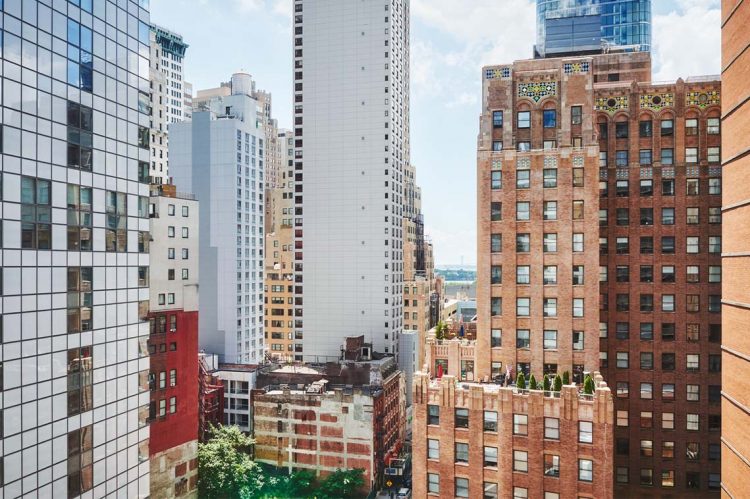The Real Estate Board of New York (REBNY) recently released its Fall 2021 Manhattan Retail Report. The report highlights improved leasing volume as well as lengthier lease commitments from retailers. While food and beverage tenants are still dominant, international fashion tenants are also becoming more active in Soho and on Madison Avenue, a key step forward from the prior quarter when local service-oriented neighborhoods were the most active.
According to the report, retailers are increasing their activity in response to the energy and activity they see in more areas of the city, as residents, tourists and some office workers return. New Yorkers have been eager to get out and experience all that the city has to offer—evidenced by improvement in foot traffic, Broadway ticket sales and other core metrics. Manhattan retail sales, for example, increased for two consecutive quarters, reaching $38.3 billion in the third quarter of 2021.
Tenants are capitalizing on the relative affordability of retail space and lease flexibility. Rents are still adjusting in most corridors. REBNY reported that average asking retail rents throughout Manhattan registered year-on-year declines in 13 of the 17 reported corridors. On the other hand, nine corridors experienced either an increase or no change in average asking price per square foot (PPSF) since Spring 2021.
The report projects continued improvements in leasing during the next six months—assuming the return of international tourists and a more robust return to the office unfolds in early 2022. This will be critical to lagging corridors that rely on tourists and daily commuters for demand. Preventing a widespread outbreak of COVID variants and addressing quality of life issues will be essential.
“While there are some encouraging signs in the current Manhattan retail data, continued progress is contingent on key economic and public health factors over the coming months,” said REBNY President James Whelan in a statement. “As we head into the start of 2022, the real estate industry looks forward to working with the incoming City administration on critical issues to the city’s economic recovery, such as improving public safety, creating good jobs and safely welcoming back office workers and tourists.”
Top brokers in Manhattan noted increased confidence in the sector’s recovery. This is in line with the recent survey of commercial brokers in REBNY’s Q3 2021 Quarterly Real Estate Broker Confidence Index, which showed that the Current Conditions Index for commercial brokers rose 74% to 36.11 in the third quarter of 2021. However, even as brokers express continued optimism and the retail market continues, industry leaders recognize that effective management of the Omicron variant of COVID-19 this winter will play a critical role in sustaining momentum for the city’s overall economic recovery.
“With New Yorkers and visitors once again going to restaurants, theaters, shopping centers and office districts, we’re seeing significant retail leasing activity in some of Manhattan’s most high-profile retail corridors,” said Robin Abrams, vice chairman at Compass, in a statement. “Many more leases are being signed in Soho, on Madison Avenue, in the Flatiron District and in other areas that had seen much less activity at the height of the pandemic. It’s especially exciting to see many of these tenants—including local, national and international retailers—engaging in longer-term leases and sparking even more optimism, as we now look forward to seeing a wide array of stores, restaurants and other new concepts opening in 2022.”
“It has been incredible to see Manhattan’s retail market come back from a period of low leasing activity to an environment in which there is increasing optimism and competition for deals,” said Joanne Podell, executive vice chair of Retail Services at Cushman & Wakefield, in a statement. “While it is going to be very important for the city to effectively manage COVID throughout the winter, we expect to see continued demand for top-quality space over the months to come. The next challenge ahead will be to bring even more of this exciting activity back to the central business districts.”
REBNY’S Biannual Manhattan Retail Report is a joint effort by the REBNY Manhattan Retail Advisory Group and the REBNY team. The report provides a snapshot of major retail corridors in the borough based on available ground-floor retail asking rent information. All data is sourced from the respective firms of each REBNY Manhattan Retail Advisory Group member. The report includes the average price per square foot, median price per square, the lowest price per square foot and highest price per square foot for each of the 17 retail corridors tracked.
Download the complete Fall 2021 Manhattan Retail Report here.
Source: REBNY











